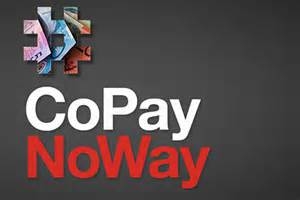
Doctors’ groups have launched a counterattack against the Federal Government’s proposed GP co-payment saying it discourages them from bulk billing.
On ABC’s Q&A program, Treasurer Joe Hockey flagged there would be exemptions to the co-payment for those with chronic healthcare plans. He also suggested doctors could use their $2 component of the co-payment to bulk bill the most needy patients.
It further angered doctors’ groups already concerned about the impacts of the proposal.
They say the co-payment scheme has been structured so that they will lose more money if they bulk bill patients.
Western Sydney GP Dr Hani Bittar said the co-payment would create a lot of problems for doctors and he is angry.
“Doctors are not investigators and are not social workers. I wouldn’t differentiate between my patients – I either charge them all or not charge them all,” he said.
“I think it’s up to government to tell people whether they should pay or not.”
Chronic healthcare plans exempt from co-payment
Mr Hockey said anyone with a chronic healthcare plan would be exempt from the co-payments.
“If you have a chronic disease or serious affliction that is being managed by the doctor you will not have to pay the co-payment,” he said.
Chronic healthcare plan assessments and subsequent visits are billed under different Medicare item numbers to general GP consultations and will not attract the $7 levy.
Anyone with a chronic health problem can be subject to a chronic healthcare plan.
Doctors say it typically includes patients with conditions such as asthma, diabetes, osteoarthritis or cardiovascular disease.
The Federal Government defines it as a “condition that has been present six months or longer”.
There is no list of eligible conditions but they usually include those requiring ongoing care from a team of specialists.
Australian Medical Association (AMA) president Dr Steve Hambleton said not everyone with a chronic condition has a chronic healthcare plan.
“There are [GP] visits in relation to chronic disease planning that won’t attract a co-payment,” he said.
“But everybody with a chronic disease who presents to the GP for a standard visit will probably have to pay a co-payment.”
System designed against bulk billing
Mr Hockey also said GPs could use their discretion to bulk bill the most needy patients.
He wants them to use their $2 cut of the co-payment to help those in difficulty.
“The doctor has the discretion not to charge in an extraordinary circumstance,” Mr Hockey said on Q&A.
“That’s why of the $7 we’re giving $2 to the doctors.”
However, GPs say if they decide to bulk bill certain patients they will not only lose their $2 cut, they will also lose an incentive scheme payment from the Government.
Ultimately, doctors will get back less from the Government if they bulk bill than if they charge the $7 co-payment.
There is also uncertainty how payment will occur in aged care settings where the elderly are bulk billed.
Dr Hambleton said under the changes, a doctor who bulk bills a concession card holder would be about 25 per cent worse off than if they charged them a co-payment.
“So there is a strong financial need for the doctor to actually raise the co-payment on nearly every case,” he said.
“We don’t believe doctors will be better off.”
On the question of using discretion, Dr Hambleton said GPs are concerned.
“While it is discretion there are incentives built in to charge a $7 co-payment,” he said.
“It’s not for the doctor to implement the Government’s social policy.”
Doctors launch CoPayNoWay campaign
General practitioners have launched a campaign against the co-payments called CoPayNoWay.
It includes a social media campaign, a website dedicated to co-payment stories and signs in waiting rooms.
Dr Hambleton said there were groups in Australia who would struggle to pay the $7.
“We need to watch very carefully that we don’t raise a barrier to primary health care,” he said.
Dr Bittar said some GPs had already seen patient numbers go down as people stay away.
“The number of people who are against it is a lot more than the number of people who agree with it,” he said.
He said the co-payment would also raise a number of logistical issues for his bulk-billing practice.
Some GP practices in Western Sydney solely bulk bill.
Problems included getting cash facilities, whether the bank would give them an EFTPOS machine for transactions less than $10 and how they would recoup unpaid bills.
“All of this will cost time and effort and money,” Dr Bittar said.
Concerns have also surfaced about the impact of co-payments on Aboriginal and Torres Strait Islander groups.
Dr Hambleton said some Aboriginal health services had indicated they would not charge the co-payment and would start losing money.
“We’re very concerned about the impact of the co-payment on this very needy group, even with multiple members of family, it’s going to provide a barrier to care,” he said.
“We don’t want to open the gap up, we want to close the gap.”
Source: ABC
